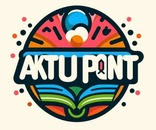EITK PYQ Analysis | Essence of Indian Tradition and Knowledge PYQ Analysis
ITCS 2022-23 Previous Year Paper
ITCS 2021-22 Previous Year Paper
Important Topics from Syllabus Based on Previous Year Question Papers
The syllabus is divided into 5 modules, and the previous year question papers have repeatedly tested certain topics. Below is a topic-wise breakdown:
1. Society, State, and Polity in India
- Stages of State Formation in Ancient India
- Kautilya’s Saptanga (Seven Limbs of the State)
- Council of Ministers Administration
- Varnashrama System & Ashrama Stages
- Understanding Gender as a Social Category
- Slavery, Kingship, Purusartha
2. Indian Literature, Culture, Tradition, and Practices
- Vedas & Upanishads
- Ramayana & Mahabharata
- Brahmi & Harappan Scripts
- Hindi/Sanskrit Literature
- Buddhist & Jain Literature (Indirectly covered in Religion section)
3. Indian Religion, Philosophy, and Practices
- Bhakti Movement
- Socio-Religious Reforms (19th Century)
- Modern Religious Practices
- Buddhism & Jainism
- Pre-Vedic & Vedic Religion
4. Science, Management, and Indian Knowledge System
- Mathematics in Ancient India
- Medicine & Metallurgy
- Water Management & Textile Technology
- Astronomy, Chemistry, Physics (Indirectly in Qs like Pyrotechnics)
- Trade & Harappan Technologies
5. Cultural Heritage and Performing Arts
- Engineering & Architecture
- Sculptures & Coins
- Theatre, Puppetry, Dance
- Indo-Islamic vs. Indian Architecture
Conclusion: Key Takeaways
1. Top 5 Highest Weightage Topics:
- Science & Technology
- Religion (Bhakti, Reforms, Modern Practices)
- Polity (Saptanga, State Formation, Council of Ministers)
- Literature (Ramayana, Mahabharata, Vedas)
- Architecture & Cultural Heritage
2. Short Notes (2 Marks) Frequently Asked:
- Brahmi Script
- Modern Religious Practices
- Puppetry/Theatre
- Council of Ministers
3. 10-Marker Predictions:
- Bhakti Movement vs. Sufism
- Harappan vs. Brahmi Script
- Water Management in Ancient India
- Women’s Representation in Historical Texts
Note: The analysis provided here is based on the previous two exam papers and thorough research on relevant topics. However, please note that these topics may or may not appear in the actual exam. We do not guarantee that the same questions or concepts will be included in the upcoming paper. Students are advised to study a wide range of topics and not rely solely on this analysis for exam preparation.








No comments:
Post a Comment